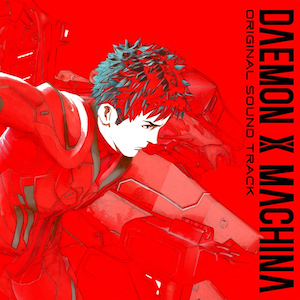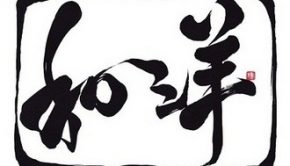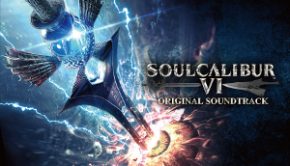DAEMON X MACHINA ORIGINAL SOUND TRACK
 |
Album Title: DAEMON X MACHINA ORIGINAL SOUND TRACK a |
| Record Label: U/M/A/A | |
| Catalog No.: UMA-1123~5 | |
| Release Date: September 25, 2019 | |
| Purchase: Listen on Apple Music |
Overview
Back in 2015, Xenoblade Chronicles X delivered mech-oriented JRPG gameplay (a rarity) to Wii U owners (also a rarity) across the globe. It would take a massive soundtrack to match the gargantuan breadth of developer Monolith Soft’s open-world title – and, lucky them, Attack on Titan’s notoriously bombastic Hiroyuki Sawano took on the challenge. The results were sometimes eccentric, often epic, and always exceptionally well produced. (You can read what VGMO thought about it here.) Perhaps that’s one of the reasons Switch-owning Monolith Soft fans still clamor for a XCX port to this day.
Why bring this up now? Because, for a time, last year’s Daemon X Machina seemed poised to fill the void; and in this mech-action title’s own soundtrack, Sawano-san’s influence runs strong. There’s no shortage of supermassive cinematic orchestration infused with rock and electronic elements. Evidently, great mechs think alike; and DxM proudly wears its inspiration on its steel-plated sleeve.
The question, then, is whether, up that same sleeve, Daemon X Machina has any other tricks.
Body
From the start, Daemon X Machina strives for the same character of sound as Xenoblade Chronicles X did. The melodies are simple, explicit, and heavily fortified. The underlying textures and rhythms are generally engaging and rich. The electro-orchestral arrangements are as strong as they are edgy. The intensity spikes so regularly that the album may as well be one three-and-a-half hour long adrenaline rush (with a few breaks here and there).
In these respects, the soundtracks share similar traits, sometimes to a fault. DxM’s rap-centric “Destiny” and the main guitar riff in “Hangar” would have sounded right at home in any Hiroyuki Sawano soundtrack, and dramatic pieces like “Move Out”, “Fate”, and “Oval Mystery” could have come straight from XCX or Attack on Titan. (The punctual choral shouts in “Shell” may even remind listeners of Attack on Titan’s Season 1 opening theme a bit.) Even “Innocence” – a fleeting moment of tranquility on the album – manages to merge chill beats, acoustic guitar, strings and choir into a combo reminiscent of some of XCX’s more ethereal moments. Yet this is a boon for the album if anything: Sawano-san’s style is coveted, and DxM does a remarkable job of emulating that style from a compositional standpoint. There are even times when DxM finds ways to improve the formula: “Brothers in Arms” would have been a driving Sawano-style orchestral track on its own, but a warm and lyrical vocal line turns it into something special.
What tends to set DxM and XCX apart are the production values. Each DxM track on offer is, in a word, packed. The trouble is that DxM doesn’t always manage to fold everything neatly together. The titular opening track introduces the main theme by way of delicate piano and children’s choir, but the orchestral components kick in a bit too loudly and a bit too soon, stepping on what came before them. The elements even out by at the 0’45” mark, but even then things feel a bit too compressed, a bit too cluttered, a bit too thin and even a bit underwhelming. This becomes a recurring issue for the album: the compositional density is commendable, but at its busiest, the results can get messy. It’s a shame, because certain tracks – particularly the ridiculously impressive and eclectic “Battle Dance” – would absolutely shine if the mix were just a bit cleaner.
On the other hand, that messiness actually suits a certain facet of DxM’s sound. DxM initially debuted in an explosive reveal trailer to the tune of “Arms of Immortal” – a face-melting metal track complete with screemo lyrics and searing synthesis. (XCX had edge, to be sure, but it never quite went that far.) Pun intended or no, metal plays a significant – if comparatively small – part on the soundtrack, and these tracks wind up coming across as DxM’s most genuine. “Overkill” sure isn’t wanting for clarity as it gives listeners the first taste of DxM’s grungier, grittier side. There’s more to follow: “Open Fire”, “Grief”, “West VII”, “Panzer Crown”, and the particularly catchy “Terrors” each tear and shred with fervor and fury. These tracks occasionally concede their rage for more “palatable” material, but that just makes their jagged edges feel all the sharper.
Gritty metal isn’t DxM’s only unique asset either. Some tracks, like the synth-pop sugar rush “Ice Cream” or the beach rock throwback “Artist”, are neither epic nor grungy, making them feel like they’re coming out of left field. “Metalfacer” sounds more like a Shin Megami Tensei-style rock theme than anything; and “Vow”, one of the most sweeping orchestral-rock tracks on the album, is also one of the least like Hiroyuki Sawano’s works. And when it comes time to close shop, DxM’s final tracks – “Life’s Journey” and “Credits” – ditch the bombastic nature of what came before in favor of a sentimental orchestral sendoff.
Summary
Frequently, Daemon X Machina tries its best to follow in Xenoblade Chronicles X’s footsteps. While the attempt is admirable, comparisons between the two don’t always flatter the former. It’s when DxM switches gears and incorporates its own ideas that the soundtrack gets interesting. It may not sport the most pristine or powerful production values, but it’s musically well put-together, and it supplies the kind of larger than life energy that mech action games demand.
Don’t dismiss DxM as a XCX imitation. It just might surprise listeners willing to look under the hood.
Do you agree with the review and score? Let us know in the comments below!
3.5
Posted on July 20, 2020 by Reilly Farrell. Last modified on September 13, 2020.














